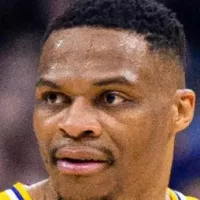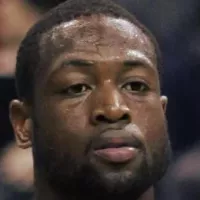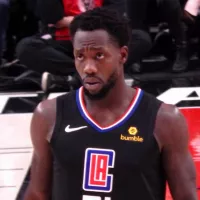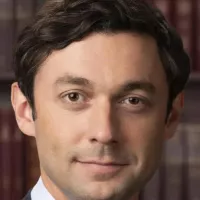The Utah Jazz are a professional basketball team based in Salt Lake City, Utah, competing in the NBA's Western Conference. Originally founded as the New Orleans Jazz in 1974, paying homage to the city's jazz music heritage, the team relocated to Salt Lake City in 1979. Since 1991, they have played their home games at the Delta Center.
1970: Utah Stars in Salt Lake City
In 1970, Salt Lake City was home to the Utah Stars of the American Basketball Association (ABA).
June 7, 1974: New Orleans Jazz Admitted to NBA
On June 7, 1974, the New Orleans Jazz were admitted as an expansion franchise into the National Basketball Association (NBA).
1974: Franchise Began as an Expansion Team
In 1974, the franchise began as an expansion team in the NBA and were named the New Orleans Jazz.
December 1975: Utah Stars Shut Down
In December 1975, the Utah Stars were shut down by the league due to financial issues.
1976: End of Utah Stars Era
The Utah Stars had previously been in Salt Lake City since 1970, but their financial situation deteriorated until they folded in 1976.
June 8, 1979: Jazz Relocation to Salt Lake City
On June 8, 1979, the New Orleans Jazz relocated to Salt Lake City, Utah, marking a significant change in the team's history and location.
June 1979: Attendance Decline After Move
Following the move from New Orleans in June 1979, the Jazz's attendance declined, partially due to a late approval for the move and poor marketing in Salt Lake City.
1979: Jazz Keep Their Name
In 1979, despite the move to Salt Lake City, the Jazz decided to keep their name.
1981: Tom Nissalke Departs as Coach
In 1981, Tom Nissalke departed as coach after the Jazz started the 1981–82 season 8–12, and general manager Frank Layden replaced him.
1981: The 2004-05 Jazz season was the worst since 1981-82.
In 2004-05 the Jazz season was marked by injuries. The Jazz ended the season 26-56, their worst since the 1981-82 season.
1983: Team Financial Struggles and Improvement On The Court
In 1983, the Utah Jazz were losing money and considering stunts like playing games in Las Vegas. The Jazz also improved on the court and won the Midwest Division.
1984: First Playoff Appearance
In 1984, the Jazz qualified for their first playoff appearance.
1984: Jazz Draft John Stockton
In the 1984 NBA draft, Jazz fans booed the selection of an unknown guard in the first round named John Stockton.
1984: Mark Eaton's Defensive Performance and Playoff Run
In the 1984-85 season, Mark Eaton averaged 5.6 blocks per game and won the NBA Defensive Player of the Year Award. The Jazz returned to the playoffs and advanced to the second round.
April 1985: Larry H. Miller Buys 50% of the Team
In April 1985, Larry H. Miller bought 50% of the Utah Jazz from Sam Battistone for $8 million.
1985: Darrell Griffith Injury
In 1985, Darrell Griffith missed the 1985-86 season due to injuries.
1985: Karl Malone Joins the Team
In the 1985 NBA draft, the Utah Jazz added Karl Malone, who immediately impacted the 1985-86 season.
1986: Adrian Dantley Traded to Detroit
In 1986, Adrian Dantley was traded to Detroit for Kelly Tripucka, and Stockton gained more time at point guard.
1986: Larry Miller Prevents Sale of the Team
In 1986, Larry Miller stepped in to purchase Battistone's remaining 50% of the team, preventing its sale and move to Minneapolis.
1987: Stockton Becomes Starting Point Guard
In the 1987-88 season, John Stockton took over as the starting point guard for the Utah Jazz.
1988: Frank Layden Steps Down as Coach
During the 1988-89 season, Frank Layden stepped down as head coach of the Jazz after the first 17 games, and was replaced by Jerry Sloan.
1988: Jerry Sloan Takes Over as Coach
In 1988, Jerry Sloan took over as the coach of the Utah Jazz, replacing Frank Layden.
1989: Jazz Make Changes to Improve Team
During the 1989–90 season, the Jazz made some changes, Thurl Bailey's playing time was reduced, and the Jazz finished with the best win–loss mark in team history.
1989: Three Jazz Players Selected as All-Stars
In 1989, John Stockton, Karl Malone and Mark Eaton were selected as All-Stars
1989: Jazz Win Midwest Division Championship
The Jazz won the Midwest Division championship for the first time since 1989 with a record of 55-27, and defeated the Los Angeles Clippers 3-2 in the first round.
1990: Jazz Execute Three-Way Trade
For the 1990–91 season, the Jazz made another move to improve the team by executing a three-way trade that brought shooting guard Jeff Malone to Utah.
1991: New Home at the Delta Center
In 1991, the Utah Jazz started playing their home games at the Delta Center.
1992: NBA All-Star Game in Salt Lake City
In the 1992-93 season, Salt Lake City hosted the NBA All-Star Game and the surrounding events of All-Star Weekend.
1993: Jazz Trade Jeff Malone for Jeff Hornacek
During the 1993-94 season, the Jazz traded Jeff Malone to the Philadelphia 76ers for shooting guard Jeff Hornacek.
1993: First time Utah hosted the NBA All-Star Game
In 1993, Utah hosted the NBA All-Star Game for the first time.
1994: Jazz lose Spencer and playoff hopes
In 1994, the Jazz experienced a setback when starter Spencer suffered a ruptured Achilles tendon 34 games into the season. Despite this, the Jazz finished with a 60–22 record, but lost to Houston in the first round of the playoffs with a 3–2 score.
1994: Minnesota Timberwolves Nearly Moved to New Orleans
In 1994, the Minnesota Timberwolves franchise, which was founded by the same people who tried to buy the Jazz in 1986, was almost sold and moved to New Orleans.
1995: Jazz reach Conference Finals
In 1995, Greg Ostertag joined the team and the Jazz achieved a 55-27 record. They advanced to the Conference Finals for the third time but were defeated by Seattle with a 4-3 score, despite almost overcoming a 3-1 series deficit.
1996: Jazz Achieve Franchise Record and Malone Wins MVP
In 1996, the Jazz achieved a franchise-best record of 64-18, won the Midwest Division, and secured the top record in the Western Conference. Karl Malone was also awarded the NBA MVP in 1996.
1997: Stockton's Injury Impacts Jazz Season
In 1997, John Stockton suffered a serious knee injury before the season began and missed the first 18 games. During this time, the Jazz recorded an 11-7 record.
1997: First NBA Finals Appearance
In 1997, the Utah Jazz made their first appearance in the NBA Finals, led by coach Jerry Sloan.
February 17, 1998: Failed Trade with Orlando Magic
On February 17, 1998, at the NBA trade deadline, the Jazz's trade with the Orlando Magic for Rony Seikaly fell through after Seikaly refused to report, leading to the Jazz taking back Chris Morris and Greg Foster.
1998: Second NBA Finals Appearance
In 1998, the Utah Jazz made their second appearance in the NBA Finals, led by coach Jerry Sloan.
1998: Jazz tied for best record in the NBA
In 1998, the Utah Jazz tied for the best record in the NBA.
1998: Jazz Lose to Bulls in NBA Finals
In the 1998 NBA Finals, the Jazz faced the Chicago Bulls. Despite taking Game 1, the Jazz ultimately lost the series 4-2 after Michael Jordan's game-winning shot in Game 6.
1999: Jazz Struggle in Postseason
During the 1999–2000 season, the Jazz finished 55–27 and won the Midwest Division, however they again struggled in the postseason, and lost to the Portland Trail Blazers in the second round.
1999: Jazz tied for best record in the NBA
In 1999, the Utah Jazz tied for the best record in the NBA.
1999: Jazz Finish Strong but Fall in Playoffs; Malone Wins MVP
In the lockout-shortened 1999 season, the Jazz tied with the Spurs for the league's best record at 37-13. They lost in the second round of the playoffs, but Karl Malone won his second MVP award.
2000: Hornacek Retires, Eisley Traded, Stevenson Drafted
In 2000, Jeff Hornacek retired from the Jazz. Howard Eisley was traded in a four-team deal that brought in Donyell Marshall, and DeShawn Stevenson was selected in the first round of the 2000 NBA draft.
2000: Multiple Jazz Players Appear in All-Star Game
In 2000, multiple Jazz players appeared in the All-Star Game for the first time since 2000.
2000: Jazz Lose Playoff Series to Mavericks
In the 2000-01 season, the Jazz posted a 53-29 record, but lost in the playoffs to the Dallas Mavericks, surrendering a 2-0 series lead to lose the series 3-2.
2001: Kirilenko Debuts, Jazz Fall in Playoffs
In the 2001-02 season, Andrei Kirilenko made his rookie debut, averaging 10.7 points, 4.9 rebounds, and 1.91 blocks per game. The team finished 44-38 and lost to the Sacramento Kings in the first round of the playoffs.
2002: NBA Returns to New Orleans
In 2002, the NBA returned to New Orleans when the Charlotte Hornets relocated to become the New Orleans Hornets.
2002: Harpring Joins Jazz, Team Falls Short in Playoffs
Prior to the 2002-03 season, Marshall and Russell left the Jazz, and Matt Harpring joined the team. The Jazz finished with a 47-35 record and lost to the Sacramento Kings in the first round of the playoffs.
2003: Stockton and Malone Depart
In 2003, both John Stockton and Karl Malone moved on from the Utah Jazz.
2003: Jazz Miss Playoffs After Malone and Stockton Depart
In 2003, without Malone and Stockton, the Jazz were expected to finish at the bottom of the NBA. However, they finished with a 42-40 record and missed the playoffs by one game, ending a 20-season streak.
2004: End of Playoff Streak
In 2004, the Jazz missed the playoffs for the first time since 1984, ending a long streak of playoff appearances.
2004: Injuries Plague Jazz, Team Struggles
The 2004-05 season was marked by injuries. The Jazz ended the 2004-05 season 26-56, their worst since the 1981-82 season.
2005: Jazz Draft Williams, Miss Playoffs, Ostertag Retires
In 2005, the Utah Jazz acquired Deron Williams. Injuries plagued key players. The Jazz narrowly missed the playoffs and veteran Greg Ostertag retired.
2006: Jazz Advance to Western Conference Finals
In 2006, the Jazz had strong draft picks, including Paul Millsap and Ronnie Brewer, and a trade for veteran Derek Fisher. The Jazz finished 51–31 and advanced to the Western Conference Finals but were overpowered by the San Antonio Spurs.
2006: First Time Since 2006 Missed Playoffs
The Jazz missed the playoffs for the first time since 2006 during the 2011-12 season, finishing the season 39–43.
2007: Mehmet Okur Replaces Injured Carlos Boozer in All-Star Game
In 2007, Mehmet Okur replaced an injured Carlos Boozer in the All-Star Game.
2007: Kirilenko Controversy, Fisher's Departure, Korver Acquisition
In 2007, controversy arose after Kirilenko's EuroBasket MVP performance and desire to be traded. Derek Fisher left the team. Kyle Korver was acquired, and the Jazz secured a 54–28 record.
2008: Jazz Hit by Injuries, Owner's Death, and Playoff Exit
The 2008-09 season was marred by injuries to stars like Williams, Boozer, and Okur, alongside the death of team owner Larry H. Miller. The Jazz finished 48-34 and were eliminated in the first playoff round by the Lakers.
2009: Jazz Draft Maynor, Matthews Emerges, Williams Makes All-Star Appearance
In 2009 the Jazz drafted Eric Maynor and added undrafted rookie Wesley Matthews. Williams made his first All-Star appearance. The Jazz concluded the 2009–10 season 53–29 but suffered critical injuries to Kirilenko and Okur in the playoffs.
July 7, 2010: Boozer Signs with Bulls
On July 7, 2010, Carlos Boozer signed a five-year, $80 million deal with the Chicago Bulls, later converted into a sign-and-trade.
2010: Restructuring Begins
During the 2010-11 season, the Jazz began restructuring after Sloan retired and Williams was traded.
2010: Jazz Rebrand with Music Note Logo and New Uniforms
In 2010, the Jazz rebranded, reverting to their "music note" logo and unveiling new uniforms.
February 10, 2011: Jerry Sloan Resigns as Head Coach
On February 10, 2011, Jerry Sloan resigned as head coach of the Utah Jazz. Tyrone Corbin replaced Sloan, and Jeff Hornacek joined as an assistant coach.
February 23, 2011: Jazz Trade Deron Williams to Nets
On February 23, 2011, the Jazz traded star Deron Williams to the New Jersey Nets for Derrick Favors, Devin Harris, and two first-round picks.
2012: Jazz Trade Harris, Acquire M. Williams and Foye
During the 2012 offseason, the Jazz traded Devin Harris for Marvin Williams and selected Kevin Murphy in the draft. They added Mo Williams and Randy Foye. Dennis Lindsey became general manager.
June 27, 2013: Rudy Gobert Drafted and Traded to the Jazz
On June 27, 2013, Rudy Gobert was selected by the Denver Nuggets and then traded to the Utah Jazz. He signed his rookie contract with the Jazz on July 6 and joined them for the 2013 NBA Summer League.
2013: Millsap and Jefferson Leave in Free Agency
Before the 2013–14 season, Paul Millsap and Al Jefferson left in free agency, joining Atlanta and Charlotte, respectively.
March 14, 2014: Jazz Eliminated from Playoff Contention
On March 14, 2014, the Jazz were officially eliminated from playoff contention after a 96–87 loss to the Los Angeles Clippers.
May 20, 2014: Jazz Draft Exum and Hood
On May 20, 2014, the Jazz earned the 5th pick in the 2014 NBA draft and selected Dante Exum. They also selected Rodney Hood and traded Jarnell Stokes.
June 6, 2014: Quin Snyder Named Head Coach
On June 6, 2014, Quin Snyder was named the eighth head coach in team history, replacing Tyrone Corbin. Snyder signed a three-year contract.
June 2014: Quin Snyder Hired as Head Coach
In June 2014, Quin Snyder was hired as the head coach of the Utah Jazz.
2015: Alleged Racist Remark by Dennis Lindsey
In 2015, Dennis Lindsey allegedly made a racist remark during an interview with Elijah Millsap.
2015: Jazz Fail to Qualify for Playoffs
The Jazz ended the 2015–16 season with a 40–42 record, finishing ninth in the Western Conference and failing to qualify for the NBA Playoffs by one game.
June 22, 2017: Jazz Draft Donovan Mitchell
On June 22, 2017, Donovan Mitchell was selected as the 13th overall pick in the NBA draft by the Denver Nuggets. The Jazz acquired Mitchell's rights via a trade with the Nuggets in exchange for Trey Lyles. The Jazz also acquired veteran Ricky Rubio.
July 4, 2017: Gordon Hayward Signs with Boston Celtics
On July 4, 2017, Gordon Hayward announced his decision to leave the Jazz and sign with the Boston Celtics as a free agent. He revealed his decision in a letter published by The Players' Tribune.
July 14, 2017: Gordon Hayward's contract finalized
On July 14, 2017, Gordon Hayward's contract with the Boston Celtics was officially finalized.
May 10, 2019: Jazz Promote Dennis Lindsey and Justin Zanik
On May 10, 2019, the Utah Jazz announced the promotion of Dennis Lindsey to executive vice president of basketball operations and Justin Zanik to general manager.
December 24, 2019: Jazz Waive Green, Sign Tucker, Trade Exum
On December 24, 2019, the Utah Jazz waived forward Jeff Green, signed G-League free agent Rayjon Tucker, and traded Dante Exum to the Cleveland Cavaliers for shooting guard Jordan Clarkson.
2019: Utah to Host 2023 NBA All-Star Game
In 2019, during the opening day of the 2019-20 season, a press conference announced that Utah would host the 2023 NBA All-Star Game.
January 30, 2020: Gobert and Mitchell Named All-Star Reserves
On January 30, 2020, Rudy Gobert and Donovan Mitchell were named as reserves for the 2020 NBA All-Star Game.
March 2020: Gobert and Mitchell Contract COVID-19, NBA Season Suspended
In March 2020, Rudy Gobert and Donovan Mitchell were diagnosed with COVID-19. This made the Utah Jazz the first major sporting franchise in North America to be directly affected by the disease, resulting in the suspension of all remaining NBA games of the season.
October 28, 2020: Ryan Smith Purchases Utah Jazz
On October 28, 2020, Ryan Smith, co-founder of Qualtrics, purchased the Utah Jazz from the Miller family.
December 20, 2020: Rudy Gobert Signs Contract Extension
On December 20, 2020, Rudy Gobert signed a five-year, $205 million contract extension with the Jazz.
2020: League's Best Regular Season Record
In the 2020-21 season, the Utah Jazz earned the league's best regular season record.
2020: Utah Jazz have an NBA-best season
The Jazz began their 2020-21 season with an NBA-best record.
February 17, 2021: Quin Snyder Named All-Star Game Head Coach
On February 17, 2021, Quin Snyder was announced as the head coach of the Western Conference team for the 2021 NBA All-Star Game.
February 24, 2021: Elijah Millsap Alleges Racist Remark by Dennis Lindsey
On February 24, 2021, former Jazz forward Elijah Millsap alleged via Twitter that Dennis Lindsey made a racist remark during an interview in 2015.
April 16, 2021: Dwyane Wade Purchases Minority Ownership Stake
On April 16, 2021, the Jazz announced that Dwyane Wade had purchased a minority ownership stake in the team.
May 16, 2021: Jazz Clinch Best Regular Season Record
On May 16, 2021, the Utah Jazz defeated the Sacramento Kings to clinch sole possession of the best regular season record in the NBA for the first time in franchise history.
2021: Early Playoff Exit
In 2021, the Utah Jazz had a disappointing early playoff exit, despite having the best regular season record.
June 5, 2022: Quin Snyder Resigns as Head Coach
On June 5, 2022, Quin Snyder announced his resignation as head coach of the Jazz.
July 1, 2022: Jazz Trade Rudy Gobert to Timberwolves
On July 1, 2022, the Utah Jazz traded Rudy Gobert to the Minnesota Timberwolves.
August 25, 2022: Beverley Traded to Lakers
On August 25, 2022, Patrick Beverley was traded to the Los Angeles Lakers in exchange for Stanley Johnson and Talen Horton-Tucker.
September 1, 2022: Jazz Trade Donovan Mitchell to Cavaliers
On September 1, 2022, the Jazz traded Donovan Mitchell to the Cleveland Cavaliers.
2022: Mitchell and Gobert Traded
In the 2022 offseason, the Jazz traded Donovan Mitchell and Rudy Gobert, entering a new era of rebuilding.
February 2, 2023: Lauri Markkanen Selected for All-Star Game
On February 2, 2023, Lauri Markkanen was selected to appear as a reserve in the 2023 NBA All-Star Game, marking his first career All-Star selection.
Mentioned in this timeline

Basketball is a team sport played on a rectangular court...

Michael Jordan widely considered one of basketball's greatest players significantly...

Russell Westbrook III is a professional basketball player renowned for...

Dwyane Wade is a retired American professional basketball player considered...
The Los Angeles Lakers are a professional basketball team based...

Patrick Beverley is an American professional basketball player known for...
Trending

1 hour ago Maya Hawke and Christian Lee Hutson celebrated wedding with Stranger Things cast present.
1 hour ago Wizz Air Launches New Larnaka-Barcelona Flights, Boosting Tourism for Cyprus and Spain.

1 hour ago Jon Ossoff criticizes Trump, speech goes viral, fueling 2028 'Front Runner' speculation.
3 hours ago ANTM's controversies are revealed in a new Netflix documentary, with Tyra Banks facing criticism.
3 hours ago EU monitors Albania's legal changes: Concerns raised over Rama's SPAK amendment.
4 hours ago Arkansas State Police sees 29% drop in high-speed pursuits due to law changes.
Popular

Jesse Jackson is an American civil rights activist politician and...
Randall Adam Fine is an American politician a Republican who...

Pam Bondi is an American attorney lobbyist and politician currently...

Barack Obama the th U S President - was the...

Martin Luther King Jr was a pivotal leader in the...

Ken Paxton is an American politician and lawyer serving as...